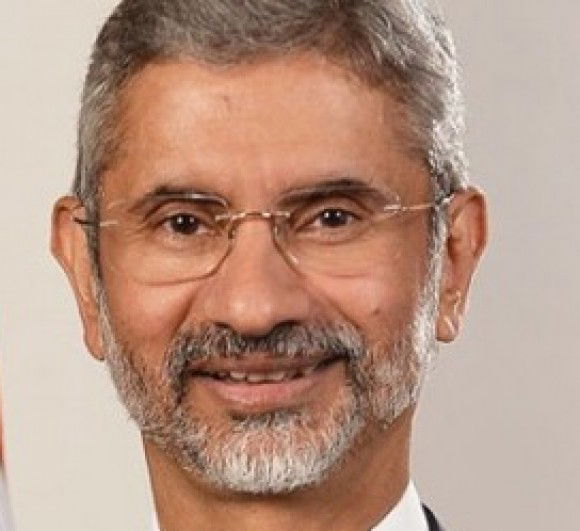Headlines
India pursuing 'neighbourhood first' policy with vigour: Jaishankar

Pokhara (Nepal), March 16 India is pursuing with “renewed vigour†its “neighbourhood first†policy, Foreign Secretary S. Jaishankar said on Wednesday.
“As far as India is concerned, we are pursuing with renewed vigour our 'neighbourhood first' policy which also translates into priority for our Saarc initiatives,†Jaishankar said while addressing the 42nd meeting of the standing committee of the South Asian Association for Regional Cooperation here.
Pointing out that India was systematically pursuing the important ideas flagged by Prime Minister Narendra Modi at the last Saarc summit held in Kathmandu in November 2014, he said: “These are important not because they were made by India but because they have the potential to help us achieve our goal of greater connectivity and integration.â€
The standing committee is a foreign secretaries-level forum of the Saarc- member nations and Wednesday's meeting was part of the build-up for the 37th session of the council of ministers meeting here on Thursday that will be attended by Indian External Affairs Minister Sushma Swaraj and her counterparts from other Saarc nations.
Speaking about the initiatives India was pursuing, Jaishankar referred to the Saarc Annual Disaster Management Exercise (Sadmex), the Saarc Regional Supra-Reference Laboratory for TB and HIV, the Satellite for Saarc, and the Saarc Knowledge Network.
He said the first Sadmex was organised in November 2015 and work on execution was underway on the laboratory.
He also said that India has received “enthusiastic support†from other Saarc nations on the Satellite for Saarc project and hoped to launch it by end of the year.
“This satellite will be of value to all our peoples as it will support applications in the area of health, education, disaster response, weather forecasting, communications etc,†Jaishankar said.
As for the Saarc Knowledge Network, he said it would provide a unified high speed network backbone for knowledge-related institutions in the region.
“This will bring together all stakeholders -- scientists, researchers and students -- to work closely for faster development The Saarc Network will take the connectivity being provided by our respective national networks to research and education communities beyond national borders,†he stated.
He also said that the Saarc Business Travellers’ Card, an initiative designed to enable easier movement of south Asian businessmen to India, would be launched within the next two months.
The Indian foreign secretary also called for deeper financial integration of the south Asian region and for achieving the South Asian Economic Union.
“Free flow of capital is an essential element to increase trade in the region and for significant remittances within and from outside the region,†he said.
“Initiatives that we have offered from our side to enable such integration include offering a currency swap arrangement for Saarc countries to overcome shortage in foreign currency and capacity building programmes in the areas of taxation and customs. We have also made unilateral concessions to LDC (least developed country) states by offering duty free access to all but 25 products.â€
Jaishnakar said a peaceful, secure and prosperous neighbourhood would yield rich dividends for all Saarc member states.
“We have some useful agreements in the area of security, including the Convention on Terrorism, Narcotic Drugs and on Human Trafficking,†he said.
“Another major challenge that we face today is that of circulation of fake currency notes. This is closely interlinked with the problems of money-laundering, drug trafficking and human trafficking as well as financing of terrorism. It would, therefore, be in the interest of the people of our region for us to collaborate at the Saarc level to tackle this matter.â€
Stressing on connectivity within the region, Jaishankar said India has embarked on significant projects in the region in areas such as rail and road building, power generation and transmission, waterway usage and shipping through regional, sub-regional, trilateral and bilateral arrangements.
“In this context, I urge that we sign, at an early date, the Saarc Motor Vehicles Agreement and Saarc Railways Agreement,†he said.

5 hours ago
G20 Johannesburg summit calls for improving global governance

5 hours ago
EAM Jaishankar speaks to Ukrainian FM, discusses latest conflict-related developments

5 hours ago
PM Modi holds significant discussions with world leaders during Jo'burg G20 Summit

5 hours ago
US says Russia-Ukraine peace draft made with Moscow's 'input'

5 hours ago
Ukraine, US to hold consultations on peace plan in Switzerland

5 hours ago
Houthi court sentences 18 Yemeni UN aid workers to death for 'spying for Israel'

5 hours ago
Justice Surya Kant to take oath as 53rd CJI tomorrow

5 hours ago
Tejas pilot’s body brought to Coimbatore; IAF personnel pay tearful tribute

5 hours ago
The Third Eye: Strategic significance of transparency

5 hours ago
Gujarat CM changes his programme venue for citizen's wedding in Jamnagar

5 hours ago
'He is daydreaming': DKS dismisses Kumaraswamy's claim of 'explosive political developments' in K'taka

5 hours ago
TN govt brings Cuddalore’s Srimushnam taluk under Cauvery Delta region; over 18,000 farmers to benefit

5 hours ago
Bilateral trade to grow, investment to surge with proposed Israel FTA: Piyush Goyal






















